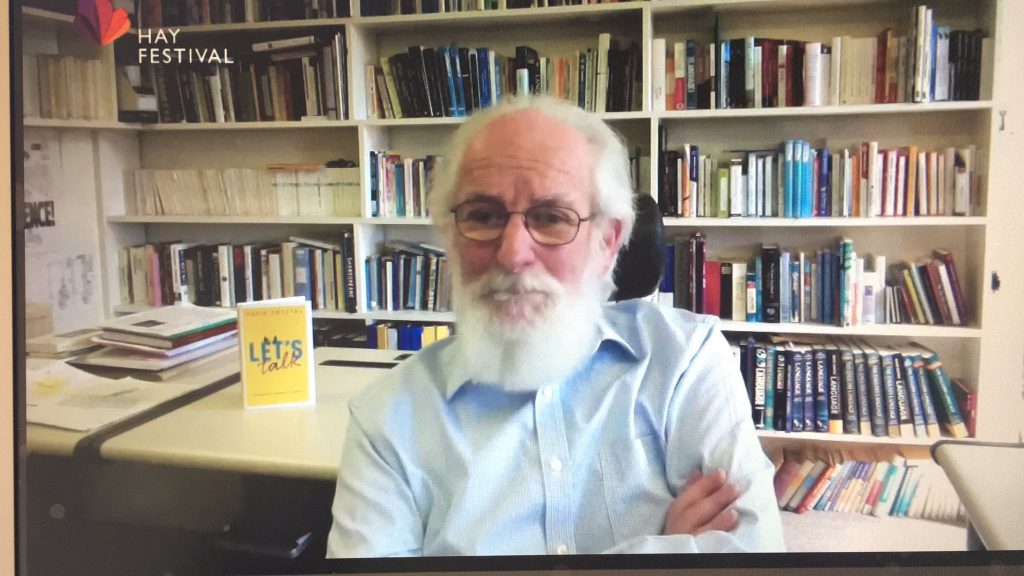
As we watched COVID-19 spread across the globe, few anticipated the impact the pandemic would have on the book world.
This blog casts its eye over the good and the bad of the literary lockdown, and at how we have learnt to do things differently.
Literary Festivals
While many literary events cancelled completely, some notable festivals, such as Hay on Wye, went online.
Instead of the usual mad rush for tickets on release day, punters got the events of their choice, and first row seats at that.

Clubs & Boutique Events
Hay’s decision to go free this year set a precedent. Local events, such as Novel Nights, Bristol, followed suit.

With geography no object, the literary world became more accessible. I attended The Cabinet Rooms, Winchester, interview with Eley Williams (pictured left), hosted by Bitter Orange author Claire Fuller. Eley’s novel, Liar’s Dictionary, came out on 2 July this year. Eley was anticipating touring her book online.
Online book clubs sprang up, including Peirene Press’s Borderless Book Club, for books in translation.
Training & Seminars
In the initial days of lockdown, creative writing teachers worried they had lost their income. It didn’t take long, however, for those tutors to harness the power of communications technology. We had academics giving seminars over Zoom (I enjoyed Dr Sam Hirst’s Romancing the Gothic); PaperNations teamed up with Upload for ‘Let ’em Hear you, Let ’em see you’, a Crowdcast how-to for author promotion; and Dr Stephanie Hutton revised her highly successful Psychology of Character workshop for an online audience via Mighty Networks.
Learning online has its advantages: you can rewind and repeat points you didn’t catch first time around, and it can be easier to raise questions.
The Publishing Supply Chain
All aspects of the supply chain were disrupted. Social distancing and illness meant reduced production or closure of paper manufacturers, printers, binders, distributors and bookshops. Not every participant has made it through: Bertram Books called in the receivers in June (BBC, 19 June 2020).
Order times for books launched just prior to lockdown took around ten weeks (author’s experience) to arrive. The books of several authors involved in online events such as Hay, were out of stock during these events on the preferred supplier’s website.
Publishers delayed the release of books, leading to a logjam this September where over 600 books are set for release on one day (The Guardian, 16 Aug 2020).
Book Format
Unsurprisingly, with bookshops closed, ebook revenues increased. By June, eBook revenues were up 39.0% on the same month last year (Open PR, 18 August 2020).
Keeping Connected
Like many other write clubs, Wiltshire Writers continued during the pandemic. In fact, we took to Zoom some time before lockdown: with one member in Canada and another in France, it was the best way for us to keep connected. As lockdown progressed, I appreciated the support and friendship all the more.
Concluding Thoughts
Some good has come from lockdown. The presentation and sitting room immediacy of events, the dispensing with travel cost and time, has opened the literary world to a wider community.
What is lost are the networking opportunities, the collective unison and drama of sitting in the audience of a live event.
Does online equate free? Literary organisations, no matter how small, incur costs, even when the event is online.
Share your Lockdown reading/writing experiences
If you with to share any thoughts relevant to this article, please use the comments section below.








